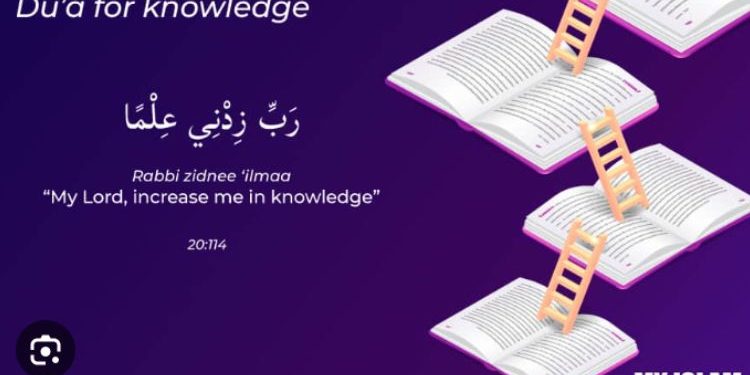Introduction:
Knowledge is a valuable asset that empowers individuals, shapes societies, and enhances personal growth. In Islam, seeking knowledge is highly encouraged and considered a sacred pursuit. Muslims understand that knowledge is bestowed by Allah, and alongside dedicated efforts, they turn to supplications, or duas, to seek divine blessings and guidance. This article explores the significance of duas to increase knowledge, their role in Islamic practice, and how they can contribute to intellectual growth.
The Power of Duas to Increase Knowledge: Duas to increase knowledge hold immense spiritual significance for Muslims. They are a means through which believers seek Allah’s blessings, guidance, and enlightenment in their quest for knowledge. Muslims understand that true knowledge is a divine gift and that acquiring it requires the assistance of Allah.
One Of The Duas Commonly Recited To Increase Knowledge Is:
“Rabbī zidnī ‘ilman warzuqnī fahman.”
“O my Lord, increase me in knowledge and grant me understanding.”
This dua encapsulates the believer’s heartfelt desire to expand their knowledge and deepen their understanding. By invoking Allah’s blessings, Muslims acknowledge their dependence on Him and seek His guidance throughout their intellectual journey.
The Role Of Duas To Increase Knowledge In Islamic Practice:
Duas to increase knowledge are an integral part of Islamic practice. Muslims incorporate these supplications into their daily lives, recognizing their importance in seeking Allah’s blessings for intellectual growth.
Muslim students often recite these duas before starting their studies, seeking Allah’s guidance, clarity, and retention of knowledge. They understand that, while their efforts are necessary, success in gaining knowledge ultimately comes from Allah’s favor. By engaging in dua, Muslims reaffirm their reliance on Allah and acknowledge that true knowledge and wisdom can only be attained through His blessings.
Furthermore, Muslims recite duas to increase knowledge in various educational settings. Whether it is attending lectures, reading books, or engaging in research, Muslims seek Allah’s guidance and blessings to enhance their comprehension and retention of knowledge. They believe that Allah’s divine assistance opens doors to new insights, deeper understanding, and the ability to apply knowledge for the betterment of themselves and society.
Conclusion:
Duas to increase knowledge are an integral part of the Islamic faith, reflecting Muslims’ belief in the divine origin of knowledge. By supplicating to Allah, Muslims seek His blessings, guidance, and enlightenment on their intellectual journey. They recognize that while personal efforts are essential, true knowledge is a gift from Allah, and it is through His grace that understanding and wisdom are attained.
FAQs:
Q1: Can Duas To Increase Knowledge Be Recited By Non-Muslims?
A1: Duas to increase knowledge are deeply rooted in Islamic tradition and are often recited within the framework of Islamic faith. However, there are no restrictions on non-Muslims reciting these duas. Seeking divine guidance and blessings in the pursuit of knowledge is a universal concept, and individuals from different religious backgrounds can engage in personal supplications according to their own beliefs and spiritual practices.
Q2: Are Duas To Increase Knowledge A Replacement For Studying And Acquiring Knowledge Through Conventional Means?
A2: No, duas to increase knowledge are not meant to replace conventional means of studying and acquiring knowledge. Muslims understand the importance of diligent study, research, and effort in gaining knowledge. Duas complement these efforts by seeking Allah’s blessings and guidance. Muslims believe that Allah’s assistance and blessings facilitate their intellectual growth, but they must still actively engage in the learning process and acquire knowledge through conventional means.



